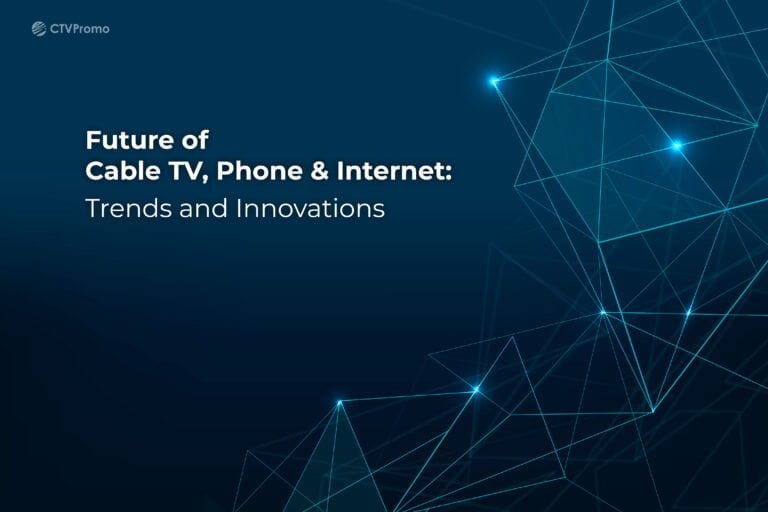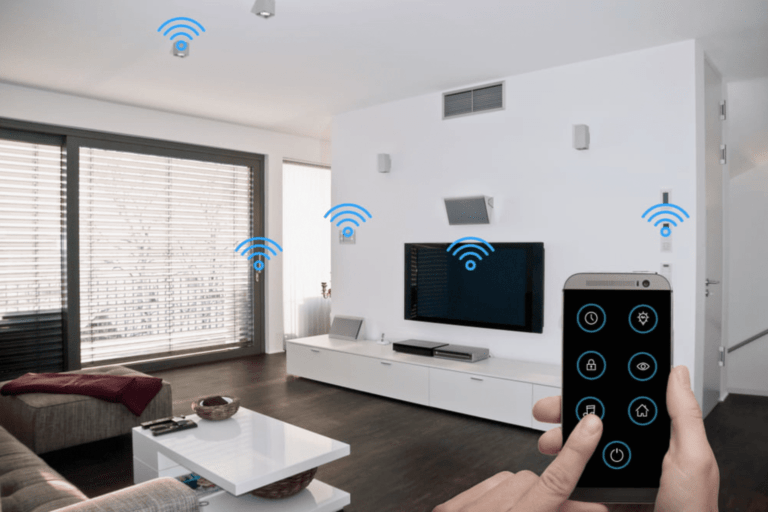On This Page
Home » Blog » How Smart Home Technology Can Enhance Energy Efficiency
How Smart Home Technology Can Enhance Energy Efficiency

In today’s world, where energy consumption and environmental concerns are increasingly important, homeowners are seeking innovative solutions to enhance energy efficiency.
Smart home technology has emerged as a promising avenue for achieving this goal. By integrating various devices and systems, smart homes can optimize energy usage, reduce wastage, and contribute to a sustainable future.
This blog explores how smart home technology can enhance energy efficiency, providing homeowners with greater control over their energy consumption and promoting sustainable living.
Understanding Smart Home Technology
Smart home technology refers to the integration of devices, appliances, and systems within a household that can communicate with each other and be controlled remotely. These devices are connected via the internet and operate through wireless networks.
Examples of smart home devices include smart thermostats, lighting control systems, automated appliances, and security systems. These interconnected devices enable homeowners to automate and control various aspects of their homes, leading to increased convenience, efficiency, and energy savings.
Monitoring and Analytics for Energy Efficiency
Smart home systems often include monitoring and analytics functionalities that provide homeowners with valuable insights into their energy usage.
By monitoring real-time data, individuals can identify areas of high consumption and make informed decisions to reduce energy wastage. Analytics tools can generate reports, highlight patterns, and suggest energy-saving measures.
This data-driven approach empowers homeowners to take proactive steps towards energy efficiency.
Integration with Renewable Energy Sources
Smart home technology seamlessly integrates with renewable energy sources, further enhancing energy efficiency.
Homeowners can integrate solar panels, wind turbines, or geothermal systems to generate clean and sustainable energy. Smart home systems can monitor energy production and consumption, optimizing energy usage based on availability and demand.
By leveraging renewable energy sources, homeowners can reduce their reliance on traditional power grids and contribute to a greener environment.
Case Studies: Real-Life Examples of Energy Efficiency
Here are some of the cases in which smart homes have proven to be extremely energy efficient.
Smart Lighting Solutions
In a case study conducted in a residential neighbourhood, smart lighting solutions were implemented to improve energy efficiency.
Motion sensors were installed to control outdoor lighting, ensuring lights were only active when required. Additionally, dimmers and timers were used to adjust indoor lighting levels based on occupancy and natural light availability.
This implementation resulted in a significant reduction in energy consumption, improving both energy efficiency and cost savings.
HVAC Optimization
In another case study, an HVAC (Heating, Ventilation, and Air Conditioning) system was integrated with a smart home automation system.
The system monitored occupancy, weather conditions, and indoor temperature to optimize HVAC settings automatically. By adjusting temperature and airflow based on real-time data, the system achieved better energy efficiency, maintaining comfortable conditions while minimizing energy wastage.
Overcoming Challenges in Smart Home Energy Efficiency
Read to learn more about some caveats to the energy efficiency aspect of smart homes:
Data Privacy and Security
As smart home technology becomes more prevalent, ensuring data privacy and security is crucial.
Homeowners must be cautious about sharing personal information and data collected by smart devices. It is essential to select reputable service providers and follow best practices for securing smart home networks, such as using strong passwords, enabling two-factor authentication, and regularly updating firmware.
Initial Costs and Implementation
The initial costs of implementing smart home technology may pose a challenge for some homeowners. However, it’s important to consider the long-term benefits and cost savings that can be achieved through energy efficiency.
Furthermore, as the technology advances and becomes more mainstream, prices are expected to decrease, making it more accessible to a wider range of consumers.
The Bottom Line!
Smart home technology offers homeowners an innovative way to enhance energy efficiency and promote sustainable living.
By integrating various devices, systems, and renewable energy sources, smart homes provide individuals with greater control over their energy consumption. Through features such as smart thermostats, lighting control, and appliance automation, energy usage can be optimized, resulting in cost savings and reduced environmental impact.
As the adoption of smart home technology continues to grow, it has the potential to transform the way we interact with our homes and contribute to a greener future.

FAQs
Is smart home technology expensive to install?
The initial costs of implementing smart home technology can vary depending on the extent of the system and the devices chosen. However, the long-term cost savings from energy efficiency and the potential increase in home value make it a worthwhile investment.
How secure is smart home technology?
Data privacy and security are essential considerations when adopting smart home technology. It is crucial to choose reputable brands, secure home networks, and follow
People also read
-
 Understanding Different Internet Speeds and Choosing the Right Plan for Your NeedsJune 15, 2023/0 Comments
Understanding Different Internet Speeds and Choosing the Right Plan for Your NeedsJune 15, 2023/0 Comments -

-

-
 Exploring the Benefits of Unlimited Data PlansJune 22, 2023/
Exploring the Benefits of Unlimited Data PlansJune 22, 2023/ -

-

-

-

-

Keep Reading
With CTVPromo, unleash the power of networking! Improve your entertainment experience with top-notch phone, TV, and internet offerings. Here is where your doorway to uninterrupted streaming and never-ending communication opens. Join us right away to explore a world filled with limitless opportunities!
Company
Providers














